1. Overview
Ethical Travel in Vietnam is a responsible way of traveling that respects the environment, culture, and local communities. It aims to create positive travel experiences for visitors while benefiting local people and protecting the environment.
Vietnam is a captivating country known for its breathtaking landscapes, diverse history, vibrant culture, and delicious cuisine. Before you begin your journey through this enchanting land, it’s important for you to understand why ethical travel (or responsible travel) is so important here.
Vietnam is a country that cherishes its traditions and natural wonders. From the bustling streets of Hanoi to the serene beauty of world-famous Ha Long Bay, Vietnam’s treasures are vast and diverse. Each location not only showcases the country’s natural beauty and cultural richness but also offers unique opportunities to engage in ethical Vietnam tourism activities.
See more in this video:
2. Benefits of ethical travel:
Ethical tourism can bring many benefits to both tourists and destinations. For travelers, ethical trips often result in deeper connections with locals as well as a more meaningful overall experience. Ethical trips can also give travelers the opportunity to learn more about their destination, helping them develop a greater appreciation for and understanding of local culture and customs.
For destinations, ethical tourism has the potential to generate more sustainable income streams, reduce negative environmental impacts, and preserve cultural heritage. It also ensures that the money tourists spend stays in the local community, supporting local families and businesses.

3. Some basic principles of ethical tourism in Vietnam
- Respect local culture: Dress politely when visiting temples and historical sites. Learn about local customs and avoid offensive actions.
- Support the local community: shop at local stores, use the services of local people, and enjoy local cuisine.
- Environmental protection: limit the use of plastic waste, save water and energy, and do not litter indiscriminately.
- Responsible tourism: Choose travel companies that are responsible for the environment and community. Avoid tourism activities that may harm the environment or exploit local people.
4. The Top 5 Most Attractive Places For Experiences Ethical Travel In Vietnam
4.1. Ethical tourism in Hoi An: Support local artisans in Hoi An
The charming ancient town of Hoi An in Central Vietnam welcomes visitors with an extremely well-preserved cultural heritage. It is so well preserved, in fact, that the entire town has been declared a UNESCO World Heritage Site. Supporting local artisans in Hoi An is one of the best ways to travel ethically.
4.1.1. Shopping for handicraft products
Hoi An is famous for many traditional craft villages such as ceramics, carpentry, brocade weaving, lanterns, etc. Visitors can shop directly at craft villages or reputable stores to support local artisans.
One organization in particular that is leading the way for positive social enterprise in Hoi An is Reaching Out Arts & Crafts. This organization empowers disabled artisans in Hoi An and the surrounding area by providing them with a platform to showcase their skills and create unique handmade products. Your visits here will ensure their talent continues to grow. You can support them in many ways while you’re in Hoi An by purchasing from their shop, attending one of their workshops, or enjoying a quiet cup of Vietnamese tea in their beautiful tea room.
Reaching Out Arts & Crafts
- Address: 103 Nguyen Thai Hoc Street, Minh An Ward, Hoi An City, Quang Nam Province
- Tel: (+84) 235 3910 168
- Open: 8:00 a.m – 9:30 p.m
4.1.2. Join handicraft classes
Many local artisans hold classes to share their knowledge and skills with visitors. Taking these classes is a great way to learn about local culture and support artisans. You can join famous classes in Hoi An, such as:
– Making bamboo handicrafts:
- Address: Taboo Bamboo Workshop, Thanh Tam Dong, Cam Thanh Ward, Hoi An City, Quang Nam Province.
- Tel: (+84) 905 312 812
- Open: 7:30 a.m – 17:30 p.m.
– Hoi An Lantern Making Class:
- Address: Vong Phu Lamp Factory – Hoi An, 08 Tran Cao Van, Hoi An City, Quang Nam Province
- Tel: (+84) 399 216 230
4.1.3. Enjoy art performances:
Hoi An regularly organizes traditional art performances such as opera, water puppetry, etc. Attending these performances is a way for visitors to enjoy local culture and support artists. You can watch water puppetry at Hoi An Water Puppet Theater.
- Address: No. 548 Hai Ba Trung Street, Hoi An City, Quang Nam Province.
- Open: from 6:30 p.m. every Monday, Tuesday, Thursday, Friday, Saturday.
- Ticket price: children 1.61 USD/person; Adults 3.22 USD/person.
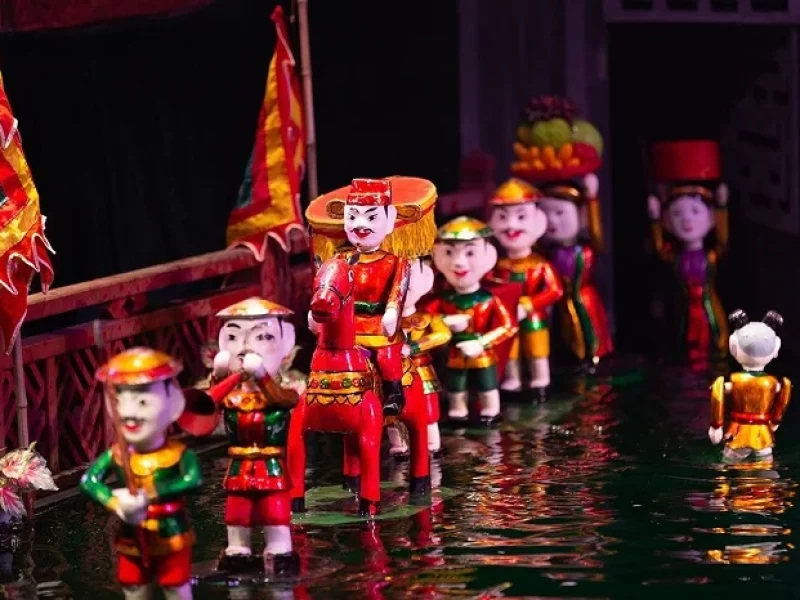
4.2. Ethical tourism in Ha Long Bay
4.2.1. Explore Ha Long Bay by boat
With emerald waters and iconic limestone mountains, Ha Long Bay is a true masterpiece of nature. While you’re here, the best way to see this wonder of the world is by boat. Responsible and sustainable marine tourism is the only way to preserve the pristine beauty of the bay.
– Indochina cruise:
- Address: 01 Ha Long, Bai Chay Ward, Ha Long City, Quang Ninh Province
- Tel: (+84) 96 434 33 22
- Website: www.indochina-junk.com
– Bhaya cruise
- Address: No. 9, Ngoc Chau Port Urban Area, Tuan Chau Ward, Ha Long City, Quang Ninh
- Tel: (+84) 2438 238 240
- Email: sales@bhayacruises.com
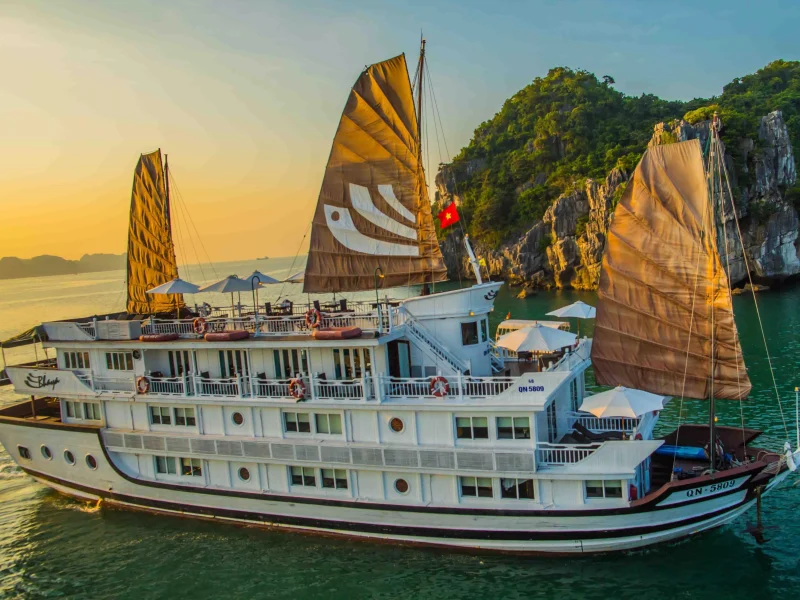
4.2.2. Visit floating fishing village
Ha Long Bay is home to a number of floating fishing villages, where people live on raft houses and make a living from fishing. Visiting a fishing village is a great way to learn about the unique lifestyle of the locals. You can experience visiting Cua Van Ha Long Fishing Village, an excellent ancient fishing village ranked among the top in the world.
- Address: located in Hung Thang commune, in the center of Ha Long City, Quang Ninh province, about 20 km from the mainland.
4.2.3. Other activities:
There are also some ethical travel activities you can do in Ha Long Bay: visit caves in Ha Long Bay, go kayaking or stand-up paddleboarding, etc. You can also create an even more lasting impact by joining a tour group that incorporates volunteering, like picking up trash, into its Ha Long Bay tour itinerary. By choosing responsible tourism operators and adhering to principles that prioritize the conservation of Ha Long Bay, you play a key role in protecting this natural wonder for generations.
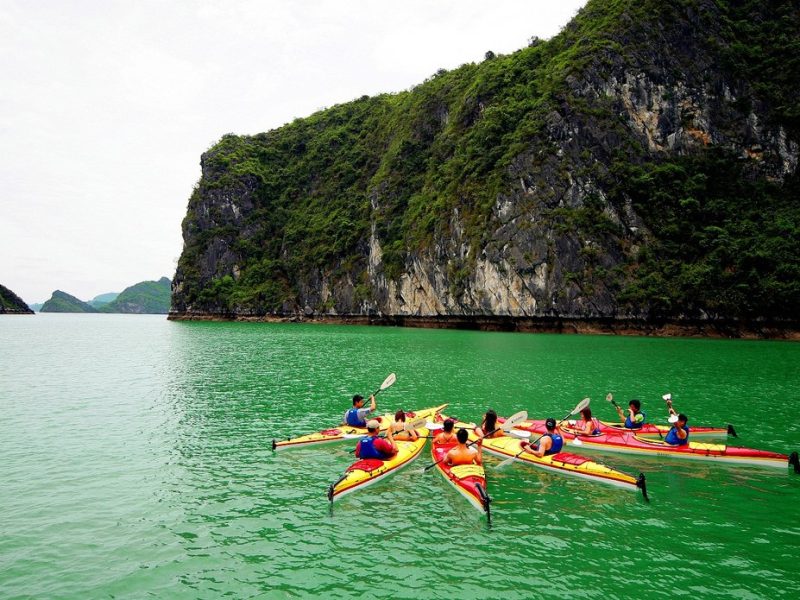
4.3. Ethical tourism in the Mekong Delta
The wild landscape of southern Vietnam features a maze of winding waterways and fertile lands. This is a place to help visitors learn more deeply about Vietnamese agriculture. Ethical tourism in this region includes exploring sustainable farming methods and engaging with local communities.
During your stay here, you will have the opportunity to roll up your sleeves and grow crops with local farmers using traditional methods. From growing rice in emerald green fields to tending an organic vegetable garden, you will gain hands-on experience in sustainable agriculture, or you can also participate in many community activities that help local people here.
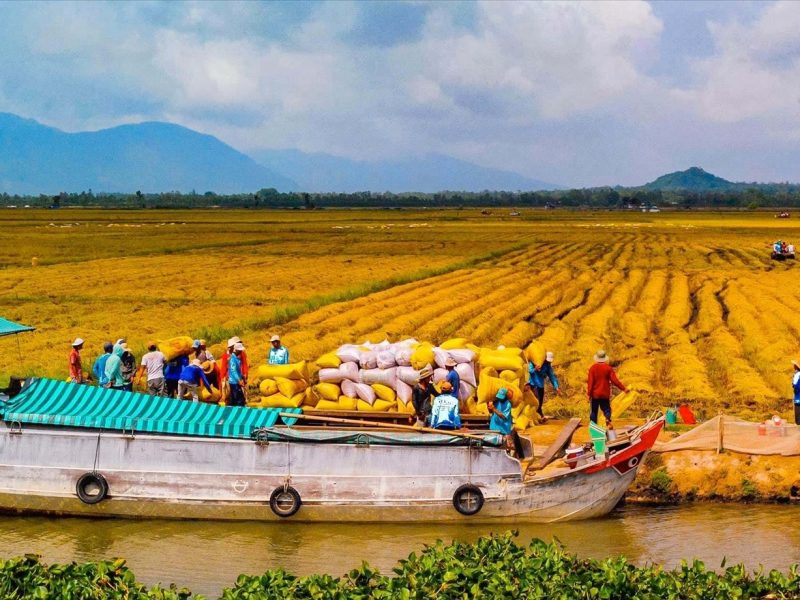
In addition, you can enjoy delicious daily meals made from locally sourced ingredients. Stay at eco-lodges, shop at local markets, visit temples, museums, take cooking or craft classes, visit ecotourism areas by walking or cycling, etc. Famous ecotourism destinations in the Mekong Delta:
- Tra Su cajuput forest eco-tourism destination,An Giang
- Hai Van farm tourist destination – Vam Ho bird sanctuary, Ben Tre
- Ba Om Pond National Scenic Relic Area and Huynh Kha Ecotourism Area, Tra Vinh.
- The garden of Phong Dien, Can Tho
- Wind power field, Bac Lieu.
4.4. Ethical tourism in Phong Nha-Ke Bang National Park
Phong Nha-Ke Bang National Park is a UNESCO World Natural Heritage Site located in Quang Binh province, Vietnam. This is home to majestic limestone cave systems, underground rivers, and tropical forest landscapes. Responsible tourism is essential to protecting this unique place for future generations.
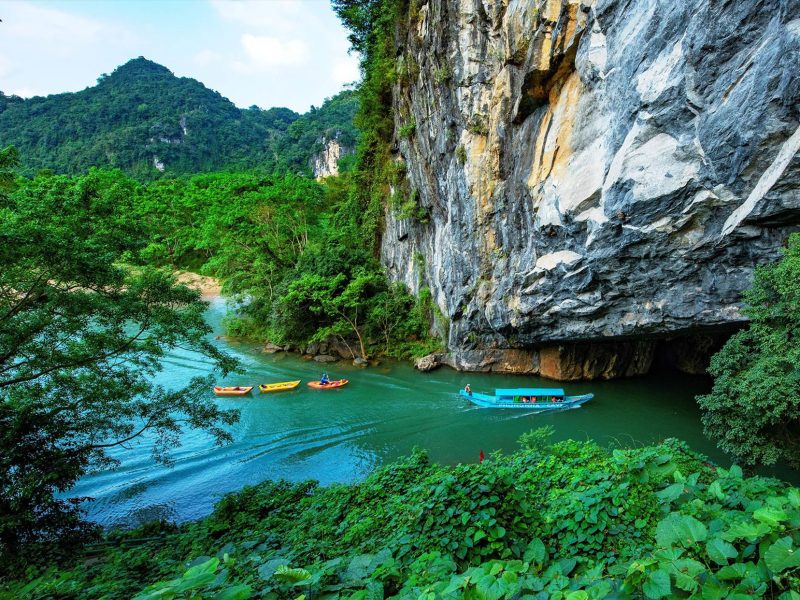
To minimize the impact on the fragile ecosystem of traveling in Phong Nha-Ke Bang National Park, it is essential that you follow responsible hiking and adventure principles. This includes staying on designated trails, properly disposing of waste, and respecting the park’s biodiversity. When you explore Phong Nha-Ke Bang National Park responsibly, you will actively participate in its conservation, an easy task like picking up trash will make a big difference.
4.5. Ethical travel in Sapa: Become part of the community in Sapa
Sapa is a town hidden among the clouds and majestic mountains in Northern Vietnam. Coming here, you will immerse yourself in the beautiful landscapes and diverse ethnic cultures around you. Responsible tourism in Sapa focuses on participating in community-based tourism initiatives that benefit local people. A special organization leading community tourism in Sapa is Sapa O’Chau. This social enterprise is dedicated to supporting ethnic minority communities through tourism.
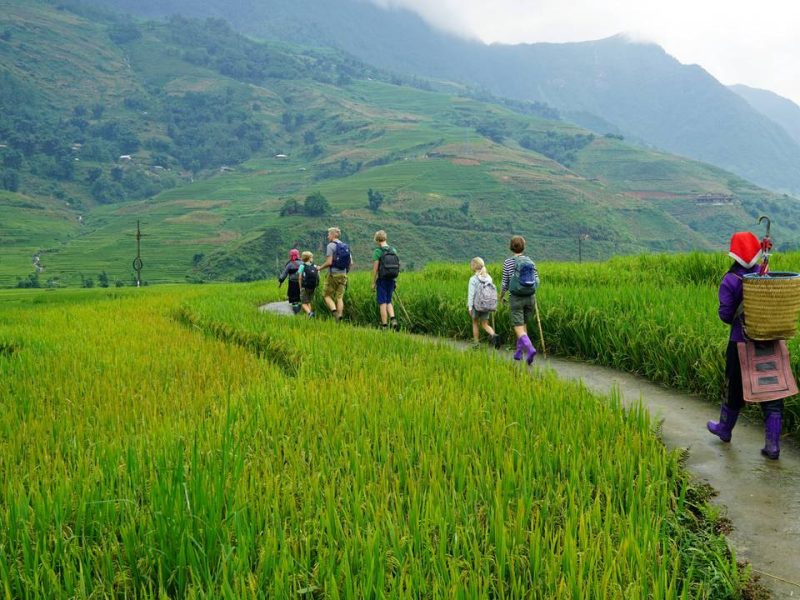
When you choose their tours or homestay experiences, you become part of a sustainable tourism model that directly contributes to the economic development and cultural preservation of Sapa. As you walk through terraced rice fields, interact, and share meals with local families, you create connections and contribute to the sustainable future of Sapa. These guided tours often take you through remote villages, where you can witness traditional practices and interact with the local community.
Responsible travel aims to minimize environmental impact and respect the culture and customs of local people. By choosing community-based tourism and guided walking tours in Sapa, you will not only have a culturally enriching experience but also help empower and uplift the local community in the area this majestic area.
You can experience more of our unique tours below:
Northern Vietnam “Golden Season” Luxury Adventure
Mixing Nature & Culture Vietnam In 30 Days
Hanoi – Pu Luong Natural Reserve
5. Conclusion
Above are the top 5 most attractive places to experience ethical travel in Vietnam that Metta Voyage shares with you. We hope you will have an enjoyable trip. Don’t forget to visit our blog to see many other exciting travel experiences.
6. Contact us:
Website: www.mettavoyage.com
Email: info@mettavoyage.com
Hotline 24/7: + 84 989 383 572


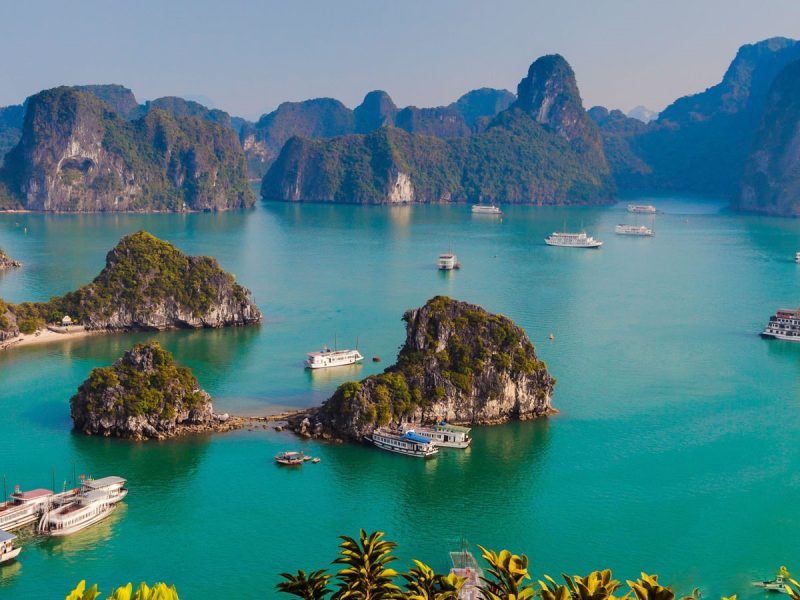
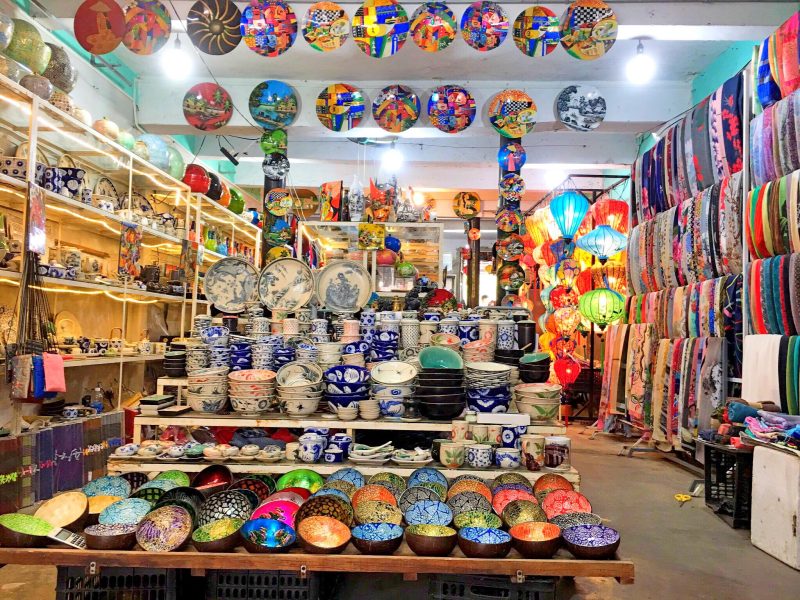
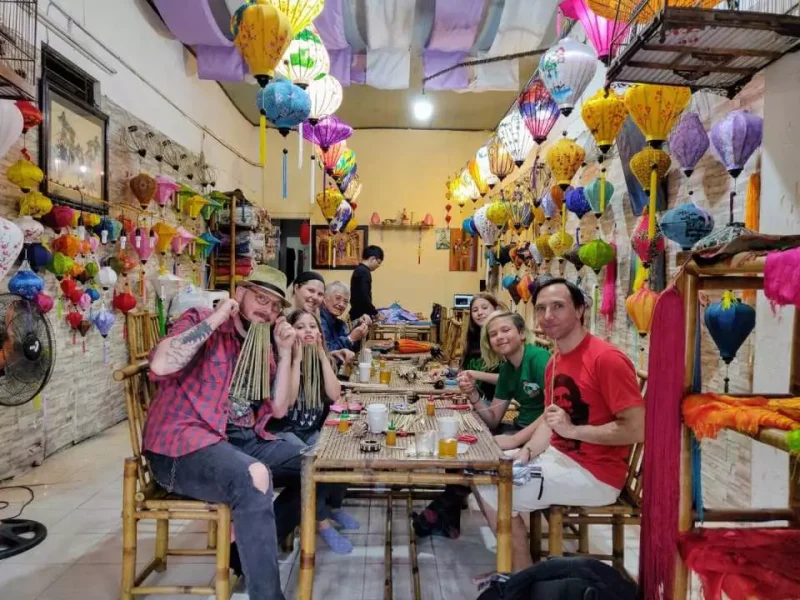
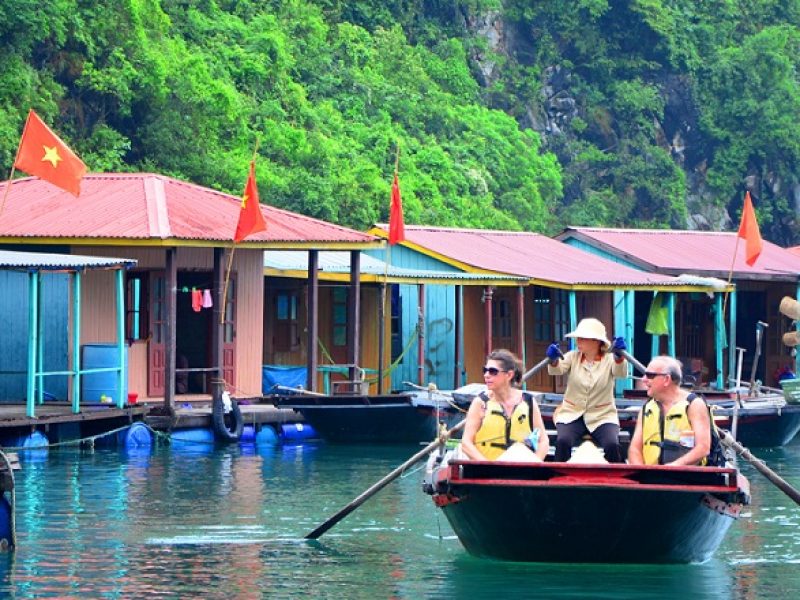
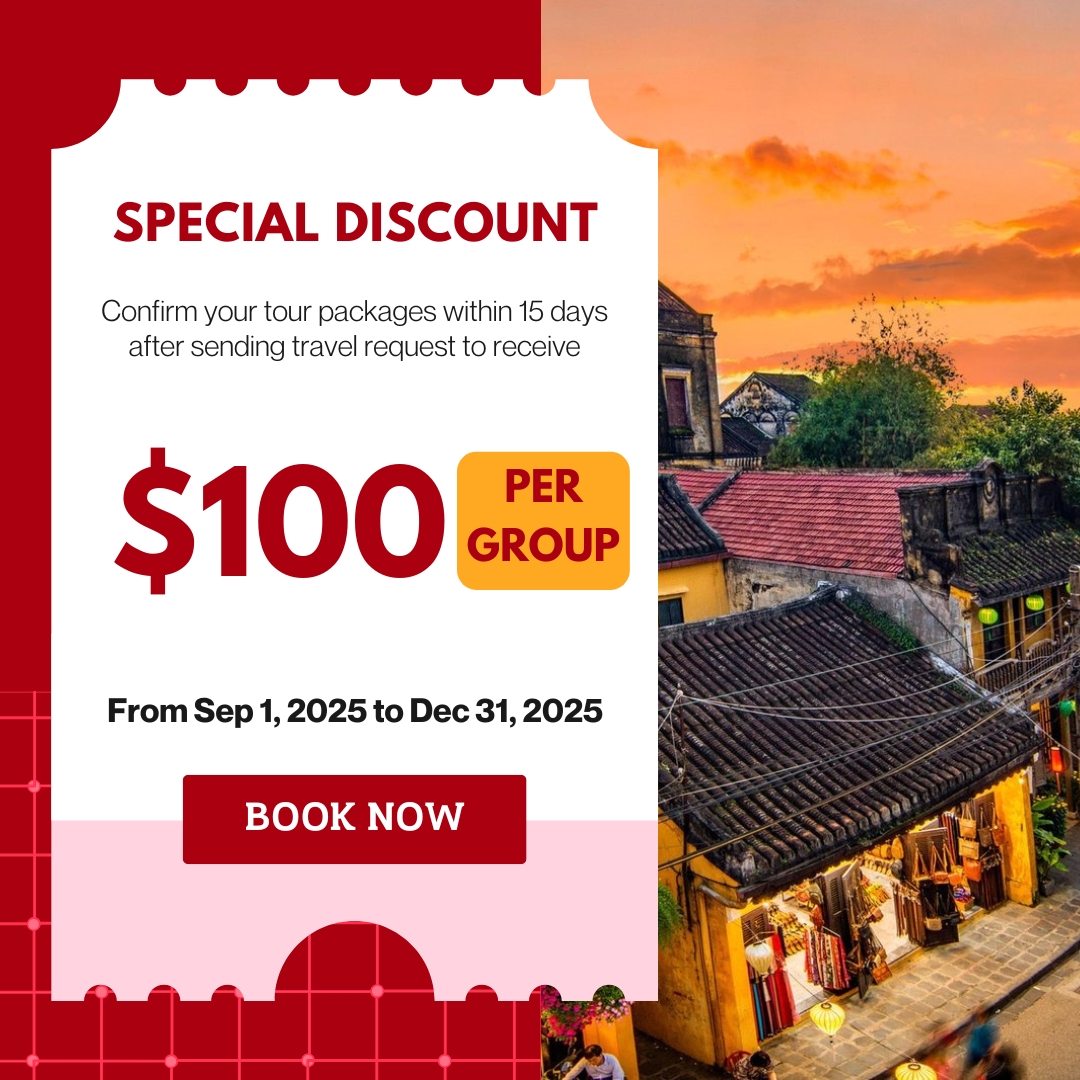
0 Comment